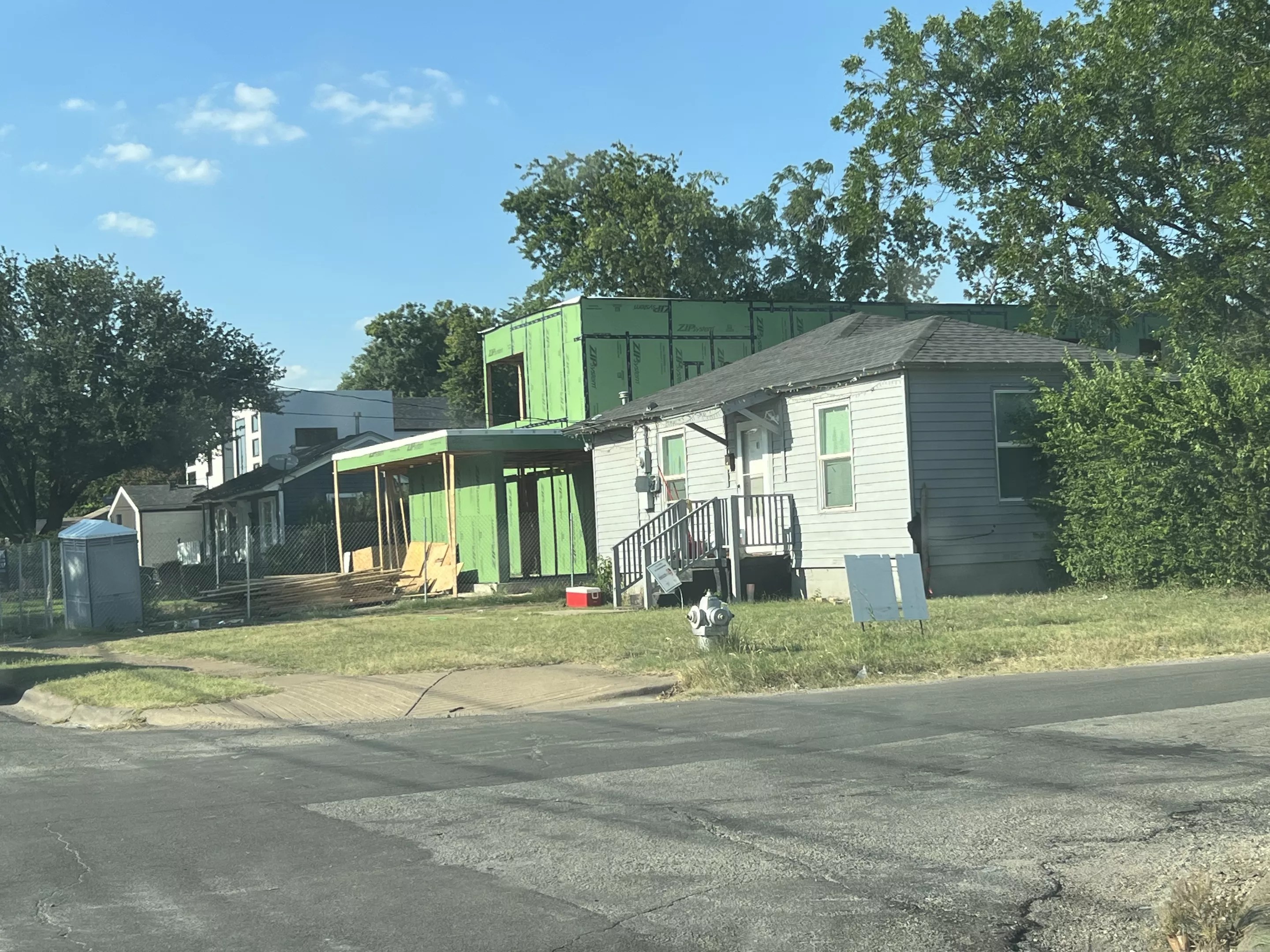
Jacob Vaughn

Audio By Carbonatix
Jay Narey, a local real estate agent with Keller Williams and 20 years of experience, has watched as investors buy up properties across the country, including in North Texas. The trend is altering the housing supply and driving up prices, Narey said. Over the last year, though, a growing number of his customers have preferred selling to individuals or couples instead of what are known as institutional buyers.
Some are willing to sell to whomever makes the right offer, but Narey said many are choosing to do business with people who want to live in the home they’re buying. “Many folks want to sell to someone who is actually going to live in the property as opposed to just using it as a passive income addition to their portfolios,” he explained.
“There is such a dearth of inventory,” Narey added. “That is the real problem.”
A recent report by the National Association of Realtors found that home sales and rental markets are suffering from an undersupply of housing stock. Year-over-year home sale prices are increasing at a double-digit pace, rents on single-family properties are up 13% and multi-family property rents are up 11%.
Investors are making the situation yet more complicated, according to the report. In Texas, investor-owned properties make up 28% of the housing stock, more than any other state. In Dallas County, institutional buyers like hedge funds and corporations bought 43% of homes sold in 2021; in Tarrant, they purchased 54%.
Low interest rates in 2020 and 2021 led investors to look for opportunities with higher returns. They also wanted assets that offered “a hedge against inflation,” the NAR report explained. The real estate market offered both – higher-return opportunities and some protection against inflation. The result has been institutional investors buying up properties to flip or turn into rentals. This takes up housing stock and drives up prices whether you’re buying or renting.
“Limiting investor sales is a red-hearing to the real problem.” – Chad West, Dallas City Council
Generally, these investors are buying in strong, high-income housing and rental markets with “rising household formation” and a lot of residents of color. This is especially true for Black households. Markets with a higher share of institutional investors tend to have twice as many Black households, added the report.
Even though they offer about the same amount as regular buyers (sometimes more, sometimes less), people might be tempted to sell to these investors because they offer cash, buy as is or offer a guaranteed purchase. A majority of the properties they buy, though, are either converted into single-family rentals or resold. This could take away housing stock for potential homeowners and contribute to higher prices, something Narey’s customers are trying to combat by selling to individuals.
During an April meeting, City Council member Jaynie Schultz asked if they were developing policy to address the effects investors are having on the market.
“Are we working on a bigger policy regarding the scourge of investment buyers?” Schultz asked Dallas Housing Director David Noguera. “It is across the country, where individuals are no longer buying homes, but [real estate investment trusts] are.”
Noguera pointed out how Canada has deals with similar issues, saying the country “restricts how many foreign investors can come into your market and buy up your real estate.”
But City Council member Chad West isn’t so sure that restricting investors is the answer.
Instead, he said, the city should be focused on beefing up its housing supply. He knows the investors have an effect on the market, but he’s skeptical that they’re the sole reason for the supply shortage and increased costs. “We are not building enough homes both for sale and for rent in Dallas to accommodate everyone that wants to move to Dallas,” West said. “That’s why prices are going up so much.”
He hopes the city will ditch the not-in-my-backyard mentality (NIMBYism) and create more housing stock and density in the areas it’s most needed.
“We’ve got to be, as a community, open to accepting that in neighborhoods,” West said. The investors are have an impact on the market, and investors call him and knock on his door all the time. But to him, “limiting investor sales is a red herring to the real problem.
“I don’t think restricting our free market is the answer here,” West said. “I think having more discussions about where density is appropriate is what we need to be paying more attention to.”